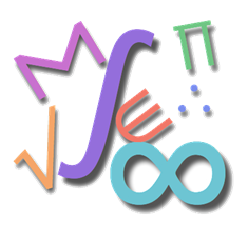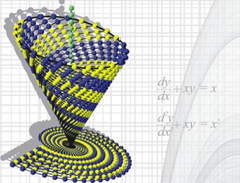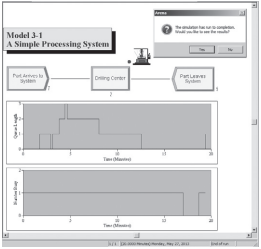SDG17 - PARTNERSHIPS FOR THE GOALS
المقررات الدراسية موسومة بـ "SDG17 - PARTNERSHIPS FOR THE GOALS"
Technology, science and capacity building are major pillars of the Means of Implementation of the Post-2015 Agenda and of the Rio+20 follow-up processes. In this unit students will Harness the digital age, as we are, after all, in the midst of the Fourth Industrial Revolution (4IR), a global era characterized by rapid advancements in new technologies and global connectivity. Artificial Intelligence (AI) now forms part of our everyday lives – optimizing and customizing what we see, choose and learn. Ubiquitous sensors are collecting more data than ever before, with connected devices simplifying our lives.
Autonomous vehicles, drone delivery and, soon, drone transport are set to transform global mobility. Even immersive reality guided surgeries, 3D printing of body parts and affordable biohacking are here or on their way. With ready access to powerful computing and breakthroughs in AI techniques, computers can now mimic how people learn, see, hear and understand, making today’s digital age also an age of unprecedented discovery and innovation.
Technology is not a silver bullet, but it holds the incredible potential to transform sectors rapidly and globally: to increase the productivity of systems.
Goal 17 – Partnership of the Goals
Target 17.8: Strengthen the science, technology and innovation capacity for least-developed countries, as it is formulated to: "Strengthen the science, technology and innovation capacity for least developed countries: Fully operationalize the technology bank and science, technology and innovation capacity-building mechanism for least developed countries by 2017 and enhance the use of enabling technology, in particular information and communications technology."
- Teacher: Maged Abdel Fatah Ahmed Basha
- Teacher: Rawan Adel Mahmoud Ezz Eldin
- Teacher: Dr.Moukid Badie Hakeem
- Teacher: Ronza Ibrahim Saad
- Teacher: Mai Khaled Abd-Elgawad Ibrahim
- Teacher: Marina Raef Magdy Abd El-Malek
- Teacher: Zeinab Abd El Halim Taha El Maboud
- Teacher: Yara Adel Ahmed Hassan
- Teacher: Maryam Ahmed Hassnin
- Teacher: Mahmoud Ali Abd Elnaby
- Teacher: Dr.Yasmine Eid Yousef
- Teacher: Ali Hamed Bastawesy
- Teacher: Sara Hani Ibrahim Desouki
- Teacher: Youssef Hazem Sharabas
- Teacher: Rahma Hussein Eid
- Teacher: computer science MSA
- Teacher: Hanan Mohamed Alkholy
- Teacher: Habiba Mohamed Mosa Ali
- Teacher: Maha hatem Mohamed
This module introduces the field of human computer interaction with emphasis on its impact on software design. It provides the student with theories and models of the way users think and work to guide the students to best design the interface to suite users’ preferences. It provides an understanding of the underlying processes of human perception, information processing, and demonstrates their relevance to user interface design. Students will learn how to apply mechanisms such as feedback, user support, navigation aids and good screen design in constructing interface designs that match users' needs. Students will also learn techniques for evaluating user interface designs that are grounded in theory.
- Teacher: Zeinab Abd El Halim Taha El Maboud
- Teacher: Hesham Abdel Hamed Emam Mansour
- Teacher: Mohamed Ashraf
- Teacher: Farah Darwish Gharib Mohamed Ali
- Teacher: Raghda Essam Abd El-Razek Ali
- Teacher: Ayman Ezzat Atia
- Teacher: Shereen Fathy El-Sayed El-Feky
- Teacher: Dr. Mohammad Ghoniem
- Teacher: Ali Hamed Bastawesy
- Teacher: Rahma Hussein Eid
- Teacher: Sara Khaled
- Teacher: computer science MSA
- Teacher: Dr.Sherine Mohamed
- Teacher: Ahmed Mohamed Mohamed Mostafa Neil
- Teacher: Momen Zaher
- Teacher: Maha hatem Mohamed
Summary:
This module is designed to introduce the students to the activities involved in a software development project. The module follows an object-oriented approach, compatible with leading programming languages such as Java, C++ and C#.
Students will be introduced to the principles of software engineering: Requirements, analysis, design and testing. We will also review of principles of object orientation, agile software development, software development life cycle, object oriented analysis, design using UML, Design Patterns and Software testing.
The module project will help the students learn how to work as a team for developing properly designed and documented software systems.

- Teacher: Mohamed Abd Elraouf Abdeen
- Teacher: Hesham Abdel Hamed Emam Mansour
- Teacher: Hanaa Abdelahad Elsaeed Abdelkader
- Teacher: Raghda Essam Abd El-Razek Ali
- Teacher: Ayman Ezzat Atia
- Teacher: Ali Hamed Bastawesy
- Teacher: Dr.Mohamed Hassan Mahmoud Elgazzar
- Teacher: Abdel-Moniem Helmy Ismail Abdel-Hafez
- Teacher: Reem Kadry
- Teacher: Dr.Mohamed Labib
- Teacher: computer science MSA
- Teacher: Marwa Mohamed Solayman Taha
- Teacher: Ahmed Mostafa Abd Elaal
- Teacher: Hanan Tarek Abdullah Maroof
- Teacher: Momen Zaher
|
- Teacher: Maha Abd Elsalam Elbaz
- Teacher: Manar Awad Ahmed Awad Mohamed
- Teacher: Ali Esam Ali Abdel Naby
- Teacher: Nada Khaled Mohamed Abdel Aziz Ramadan
- Teacher: Yasmin Labib
- Teacher: Donia Mamdouh Ahmed Elshafey
- Teacher: Moataz Mohamed Abdel Hafez El-Kholy
- Teacher: Aliaa Mohamed Mahmoud Abdel-Rahman El-Wakeel
- Teacher: Youmna Mohamed Mahmoud Abdelhadi
- Teacher: Ahmed Mohamed Rashad Mohamed
- Teacher: Nader Nabil El Bokl
- Teacher: Shereen Wagdy Arafat Mousa

Functions-Properties of Functions – Composite Functions-Limits – Computational Techniques of Limits. Continuty – Limits and Continuty of Ttrigonometric Functions- The Derivative – Techniques of Differentiation – Derivative of Trignometric Functions – The Chain Rule – Implicit and parametric Differentiation-Inverse Functions – Logarithmic and Exponential Functions – Inverse Trignometric Functions – Hyprbolic Functions – Inverse Hyperbolic Functions- L'Hopital Rule – Indeterminate Forms - Taylor and Maclurin series -Functions of Two or More Variables – Partial Derivatives – Chain Rules.
- Teacher: Dr.Ghada Abdelhady
- Teacher: Prof.Magd Elias Kahil
- Teacher: Diaa Hafez
- Teacher: Marine Maher Mauric Guirguis
- Teacher: Maysa Mahmoud Fathy Omar
- Teacher: Dr.Nabila Nowaira
- Teacher: Prof.Dr.Hafez Radi
- Teacher: Prof.Nahed Sobhi abd elnour
- Teacher: Mona afifi

*Recognize the importance of the theory of
differential equations and understand the relation between differential
equations and various fields of sciences.
* Formulate the essential facts, concepts, principles and theories related to
the theory of differential equations.
* Use analytic methods for solving ordinary differentia equations which appear in engineering applications.
* Employ recent communication and information technologies, models and tools effectively in different numerical methods..
- Teacher: Dr.Ghada Abdelhady
- Teacher: Diaa Hafez
- Teacher: Youssef Hany Moustafa El-Habashy
- Teacher: Alaa Hashem Mohamed Abd Elrahman
- Teacher: Maysa Mahmoud Fathy Omar
- Teacher: Dr.Noha Moustafa
- Teacher: Dr.Nabila Nowaira
- Teacher: Prof.Dr.Hafez Radi
- Teacher: Prof.Nahed Sobhi abd elnour
- Teacher: Mona afifi

|
- This module is designed to provide senior students with an in-depth understanding of the simulation modeling process. - Topics covered include the fundamental concepts of simulation modeling. - The time advance mechanisms, input data analysis techniques, model validation and verification concepts, designing simulation experiments, and simulation output analysis approaches. - Hands- on exercises to be conducted to develop discrete – event simulation models using the simulation package ARENA with applications from the manufacturing and service sectors. |
- Teacher: Sameh Ahmed Salah El-Dein
- Dr.Ali Bahig: Dr.Ahmed Akram Fawzi
- Dr.Ali Bahig: Youssef Amr Mahmoud Naga
- Dr.Ali Bahig: Ali Bahig Ali
- Teacher: Diaa Hafez
- Teacher: Maysa Mahmoud Fathy Omar
- Teacher: Dr.Nabila Nowaira
- Teacher: Prof.Dr.Hafez Radi
- Teacher: Prof.Nahed Sobhi abd elnour
- Teacher: Mona afifi
- Teacher: Dr. mohamed el said hassan
- Teacher: Maha Abd Elhakeem Hassan
- Teacher: Yasmine Ahmed Sweed
- Teacher: Hebat Allah Adel Shaaban Hassan
- Teacher: Dr.Nagla Ibrahim Saleh al-Hadidy
- Teacher: Nourhan Khaled Ahemd
- Teacher: Nadeen Khaled Mohamed Kamal
- Teacher: Dr.Soha Raafat
- Teacher: Nadia Salah El Din El Kholy
- Teacher: Amani Wageh Abd Al-Halim
- Teacher: Hala Yousry Darwish
Macroeconomics is concerned with the understanding of aggregate phenomena such as economic growth, business cycles, unemployment, inflation, and international trade among others. ... These topics are of particular relevance for the development and evaluation of economic policy.

- Teacher: Dr.Doaa Abdou
- Teacher: Nagah Ashraf Mohamed
- Teacher: Mona Bedier
- Teacher: Salma Kamal Zanaty Mahran
- Teacher: Dr.Mai Mohammed Yasser
- Teacher: Dr.Rehab mohammed mahmoud el bordiny
This course is the first phase of the graduation projects of PR and Advertising. It is mainly the extensive research part. It contains the extensive research part, data collection, data analysis where the students do a survey and analyse the results and relate the results to the already read material.
The research is about a social marketing problem to be solved in the Egyptian society, or about rebranding of an already existing Egyptian entity.
The idea of the research has to be related to the SDGs and the Egyptian sustainable plan 2030.
The students do not only study the problem in the Egyptian society, but also they provide the scientific solutions for it. They are asked to seek professional help from real practitioners in the field to provide real solutions to the problem. This happens through the interviews with practitioners related to the problem.
The same thing applies in the rebranding part, they manage to choose an Egyptian entity and follow the rebranding marketing plan to make it a new different entity.
In both cases, they do huge extensive literature review, similar campaigns and its results, Swot analysis, macro environment, decide on the variables for the survey, conduct the survey, analyse it and come up with solutions.
SDG- Teacher: Radwa Ahmed Youssef Manie
- Teacher: Lama Atef Atta Atta Bisher
- Teacher: Haya Badr Mohamed
- Teacher: Nada Bahgat Abd Elazim Mohamed
- Teacher: Rania Elsaied Ahmed Shaaban
- Teacher: Lamees Magdi Mahmoud El Baghdady
- Teacher: Hassan Marrie
- Teacher: Ahmed Mohamed Abdel Aziz
- Teacher: Monia Mohsen Mahmoud fahmy
- Teacher: Nesrin Nader
- Teacher: Islam Nasser
- Teacher: Rana Reda Abbas Mohamed Rashad
- Teacher: Sally Saeed Hassanien Mohamed
- Teacher: Dina Younis
- Teacher: Monda magdi Mustafa
This module aims:
• To enable students to design, refine and do the preparatory research for the development of an independent, self-directed broadcast project;
• To enable students to produce work which will build on, extend and/or refine issues, practices, concepts and approaches which formed part of their previous learning on their programme of study;
• To promote the development of the skills required for the development of independent project work.
• To allow students to develop project work which will permit a critical reflection on broadcasting and broadcast practice.
Ideas and topics tackled in this unit serve the development of the society through discussing different social problems, community services initiatives, health and well being issues, gender equality, economic growth, reduced inequalities and partnerships. The SDGs are a main theme in this unit, students do extensive research to cover the topic in hand and develop an independent project.
- Teacher: Afaf Abdel Gawad Ali Tobbala
- Teacher: Yasmin Ahmed Ali Hasan Fouad
- Teacher: Salma Ali Samy
- Teacher: Dr.Nesseen Bahaa Aldeen
- Teacher: Habiba ElSherbiny
- Teacher: Mona Fathy Abd Elrahman Badran
- Teacher: Hala Galal Elsayed Mohamed
- Teacher: Khaled Gamal Abdou
- Teacher: Donia Mohamed Essam
- Teacher: Reham Mohamed Salah
- Teacher: Hala Mostafa Alzahed
- Teacher: Nervan Nabil Mohamed Abass
- Teacher: Fieby Raouf Fahmy
- Teacher: Reham Sami Hussein
- Teacher: Noha Samir Taha Mahgoub
- Teacher: Hams Tamer Abdellatif Abdelrazik
- Teacher: loay fahmy hassan